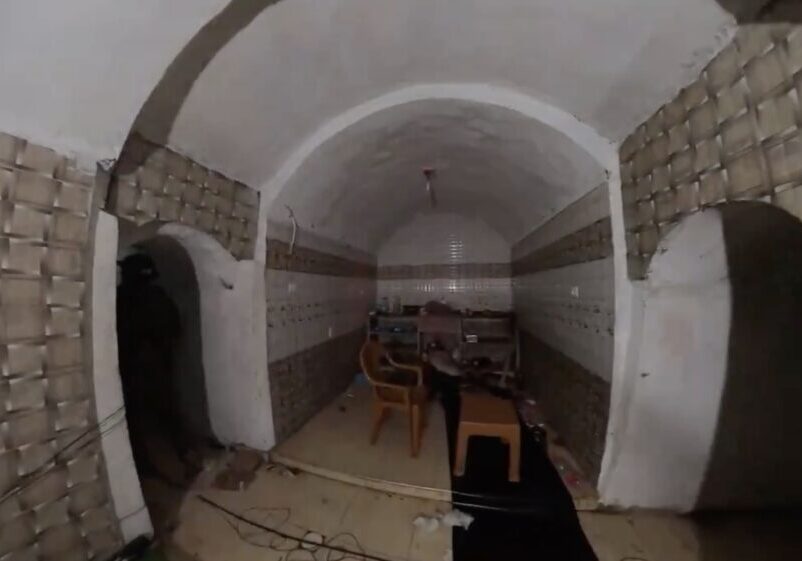Australia/Israel Review
Bibi and Barack Can Unite
Apr 28, 2009 | Yossi Klein Halevi
By Yossi Klein Halevi
Enemies of the American-Israeli alliance could not have conjured a scenario more fraught with potential for misunderstanding. In Washington, a new president is reaching out to the Muslim world, including Iran. In Jerusalem, the government which has just taken office represents the disillusionment of the Israeli public with 15 years of failed peace talks. For President Barack Obama, power is a means to encourage the rational self-interest of opponents. For Prime Minister Binyamin Netanyahu, power is the means of defending his people from irrational hatred. Mr. Obama’s mandate is for change; Mr. Netanyahu’s is for survival.
Though the inclusion of the Labor Party in Mr. Netanyahu’s otherwise right-wing coalition will shift it toward the centre, differences between Washington and Jerusalem will persist. With Iran about to achieve nuclear capability, and its proxies in Lebanon and Gaza gaining strength, this is the worst possible time for tension between the US and Israel. But a crisis can be averted if both countries consider each other’s most pressing needs and remain focused on their shared anxieties.
The first prerequisite is genuine realism in Washington regarding negotiations with the Palestinians. It will be tempting in the coming months to blame Mr. Netanyahu – who has refused to commit himself to a two-state solution – for the absence of a peace agreement. But that breakthrough would have eluded any Israeli government. Former Prime Minister Ehud Olmert and his foreign minister, Kadima leader Tzipi Livni, couldn’t have tried harder to reach an agreement with the Palestinians.
Instead of continuing to pursue the unattainable, the American-Israeli approach should focus on creating a civil society in the West Bank that is an essential precondition for the eventual creation of a Palestinian state. Mr. Obama will find a ready partner in Jerusalem for improving economic conditions in the West Bank. That process would present the Palestinians with a stark choice between their two territories: the beginnings of prosperity in a peaceful West Bank, or devastation in a jihadist Gaza.
Inevitably, the most sensitive issue in managing the American-Israeli relationship will continue to be settlements. Under President Bill Clinton’s December 2000 Middle East peace plan, settlement blocs like Gush Etzion near the 1967 border would be retained by Israel in an eventual agreement. Indeed, no Israeli government will stop building in those West Bank blocs.
The tacit agreement between Mr. Obama and Mr. Netanyahu, then, needs to be American acquiescence in continued building within the highly populated settlement blocs, in exchange for Israeli restraint in building beyond the blocs. The Netanyahu Government has a mandate from the Israeli public to act decisively against any security threat, and to resist international pressure for premature peace agreements. But it doesn’t have a mandate to resume massive settlement expansion across the West Bank.
The Israeli Jewish public that voted overwhelmingly for right-wing parties did so primarily for security reasons. The Israeli right of 2009 is a mood, not an ideology. And Mr. Netanyahu understands the expectations of his voters. During the election campaign, he spoke incessantly about stopping a nuclear Iran and the jihadist threat generally – not about settlement growth. However grudgingly, Mr. Netanyahu’s right-wing coalition partners will likely accept some limitation on settlement building. And the presence of the Labor Party in the coalition will ensure moderation on the settlement issue. Indeed, the small National Union party is the only right-wing party that places massive settlement building at the top of its agenda, and is not part of this coalition.
For all their differences over the nature of a negotiated settlement with the Palestinians, Mr. Netanyahu and Labor leader and Defence Minister Ehud Barak have set those aside to focus on the most urgent issue facing the Middle East in the coming months: preventing the emergence of a nuclear Iran and the imposition of an irreversible blackmail on the region.
America and Israel should emulate the Israeli government’s single-minded focus. This is not the time to be distracted by what are, for now, secondary issues, like eventual Palestinian statehood. Nor should disagreements between Israeli and American intelligence agencies over the pace of Iranian nuclear development distract the two governments from their agreement over the danger posed by a nuclear Iran. By focusing on thwarting Teheran’s nuclear ambitions, the US and Israel will find Arab allies like Egypt and Saudi Arabia. That dynamic is already creating a shift in regional alliances, and could eventually lead to a real Middle East peace process.
In sparing Israel a narrow right-wing coalition and by persisting in creating a semblance of a national unity government, Mr. Netanyahu has taken the essential first steps in protecting his country’s relationship with Washington. Now Washington needs to take the next step and affirm its readiness to work with the Netanyahu-Lieberman-Barak Government to save the Middle East from apocalyptic threat.
Yossi Klein Halevi is a fellow at the Adelson Institute for Strategic Studies of the Shalem Centre in Jerusalem, and a contributing editor of the New Republic. © Dow Jones, reprinted from the Wall Street Journal by permission, all rights reserved.
Tags: Israel






